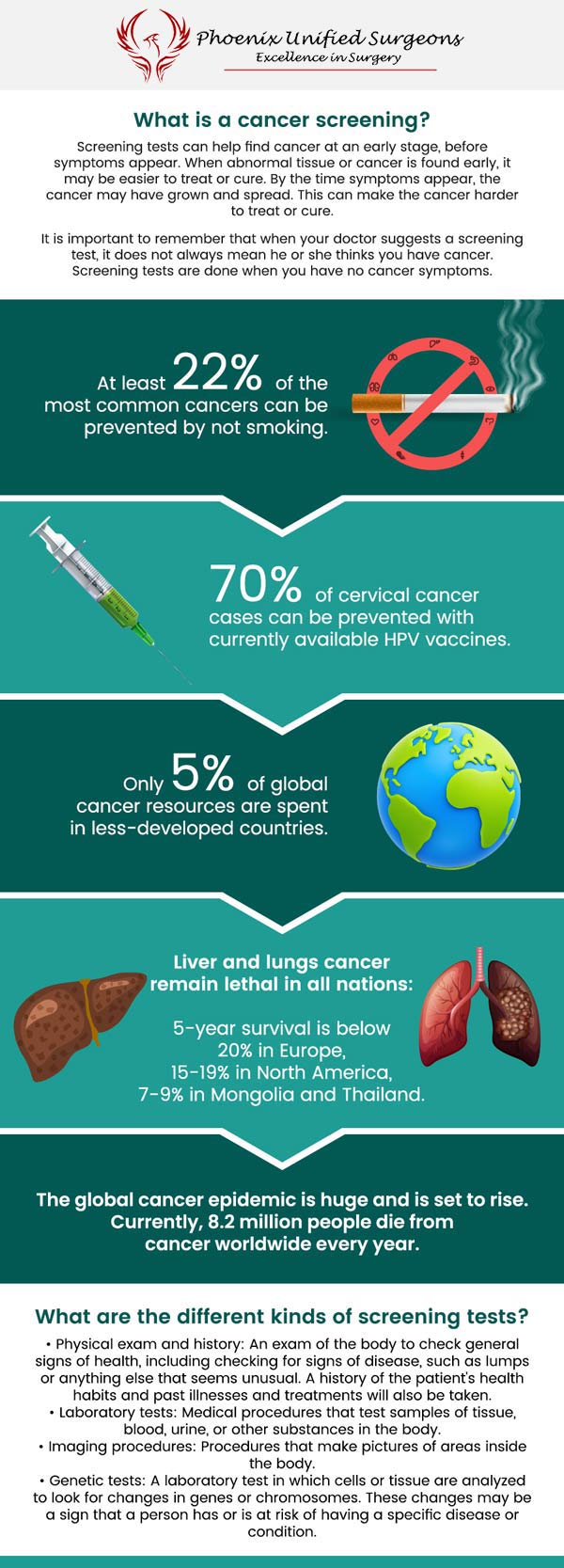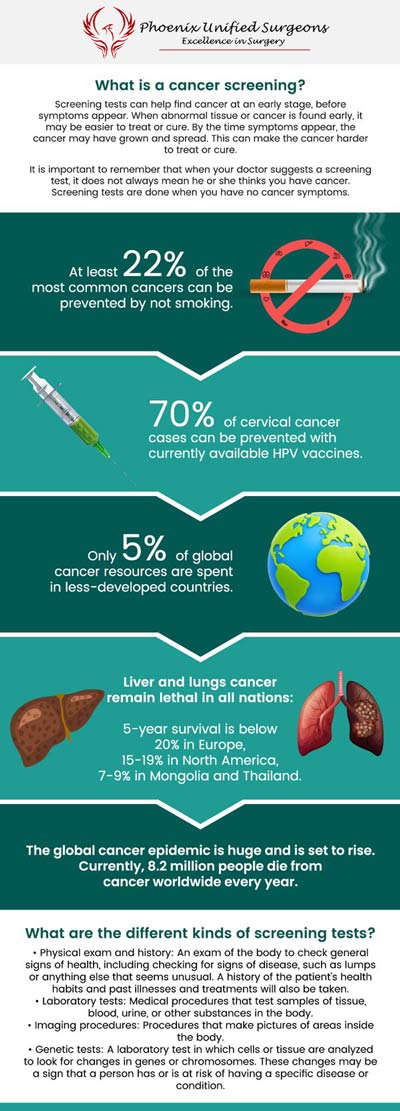What Are the Signs of Colon Cancer?
Colon cancer often presents with subtle signs that can easily be overlooked. Early symptoms may include changes in bowel habits, such as persistent diarrhea or constipation, and unexplained weight loss. Blood in the stool or a feeling that the bowel doesn’t empty completely may also indicate a need for further evaluation. If you experience any of these signs, consult one of our board-certified surgeons for a thorough examination and appropriate screening. Please contact us or book your appointment online. We are conveniently located at 20333 N 19th Avenue, Ste 230 Phoenix, AZ 85027.


Table of Contents:
What are the early symptoms of colon cancer?
How can changes in bowel habits indicate colon cancer?
What role does blood in the stool play in detecting colon cancer?
What other warning signs should I be aware of for colon cancer?
Early symptoms of colon cancer can often be subtle and may not be immediately recognized as a serious health concern. These signs can vary depending on the location of the cancer within the colon, but they often include persistent abdominal discomfort, such as cramps, gas, or pain. Many individuals also experience a feeling that their bowel isn’t completely emptying. Fatigue and unexplained weight loss are also common early indicators that should not be ignored. It’s important to remember that these symptoms can also be caused by other conditions, such as irritable bowel syndrome (IBS) or hemorrhoids. However, if any of these symptoms persist for more than a few days or weeks, it is crucial to consult a healthcare professional for a proper diagnosis and guidance. Early detection is key to successful treatment, and a screening colonoscopy can provide definitive answers.
Changes in your regular bowel habits can be a significant warning sign of colon cancer. This may include a persistent alteration in the consistency of your stool, such as loose, watery stools or a sudden onset of constipation. The frequency of your bowel movements may also change, becoming more or less frequent without any clear reason. For example, if you typically have a bowel movement once a day and suddenly find yourself going only every three days, it’s worth noting. The sensation of a persistent urge to have a bowel movement, even after you’ve just gone, can also be a symptom. These changes occur because a tumor in the colon can narrow the passageway, affecting the way stool passes through the digestive tract. If you experience these changes and they do not resolve within a week or two, please consult with your doctor.
The presence of blood in the stool is a critical symptom that should always be investigated by a medical professional. Blood may appear bright red, indicating it’s from a source closer to the rectum, or it may be dark or black and tarry, which can signal bleeding higher up in the colon. While blood in the stool can be caused by less serious conditions like hemorrhoids or anal fissures, it is also a primary symptom of colon cancer. A tumor in the colon can bleed, and this blood is then passed with the stool. Because this symptom can be easily mistaken for other issues, it is essential not to self-diagnose and to seek immediate medical attention. A healthcare provider can perform diagnostic tests to determine the cause of the bleeding and, if necessary, recommend a colonoscopy for further examination.
In addition to the previously mentioned symptoms, there are several other warning signs that may indicate the presence of colon cancer. One such sign is unexplained iron-deficiency anemia, which can occur due to slow, chronic blood loss from the tumor that isn’t visible in the stool. This can lead to persistent fatigue and weakness. Another symptom is a feeling of fullness or a mass in the abdomen. This can happen if the tumor grows large enough to be felt through the abdominal wall. Furthermore, chronic abdominal pain or discomfort that doesn’t improve with over-the-counter remedies is a reason for concern. It is important to remember that these symptoms are not exclusive to colon cancer and can be caused by various conditions. However, a combination of these symptoms, especially if you have risk factors such as a family history of colon cancer, warrants a discussion with a healthcare professional to rule out a more serious condition and to discuss screening options.
Visit Phoenix Unified Surgeons to speak with our board-certified specialists who can provide expert guidance and the care you need for early detection and treatment. Please contact us or book your appointment online. We are conveniently located at 20333 N 19th Avenue, Ste 230 Phoenix, AZ 85027. We serve patients from Phoenix AZ, Sun City AZ, Peoria AZ, Surprise AZ, Glendale AZ, Scottsdale AZ, and surrounding areas.
Check Out Our 5 Star Reviews



Additional Services You May Need
▸ Colon & Rectal Surgery
▸ Gallbladder Surgery
▸ Colonoscopy
▸ Wound Care
▸ Hernia Repair
▸ General Surgery
▸ Robotic and Minimally Invasive Surgery
▸ Appendectomy
▸ Colon Repair/Resection
▸ Lipoma & Cyst Removal
▸ Endoscopy and Colonoscopy
▸ Abdominal Pain
▸ Colon surgery for Diverticulitis
▸ Colon surgery for Colon Cancer
▸ Hemorrhoids
▸ Anal Fistulas
▸ Anal Pain Surgeries
▸ Colostomy Avoidance Surgery
▸ Fecal Incontinence Surgery
▸ Crohn’s Surgery
▸ Ulcerative Colitis Surgery






